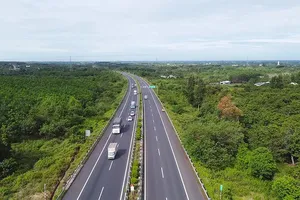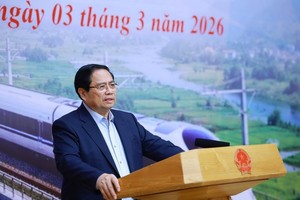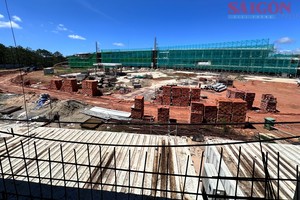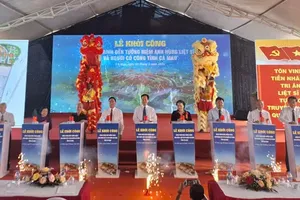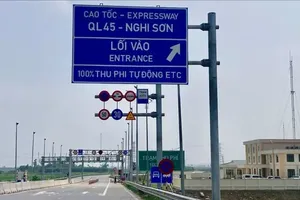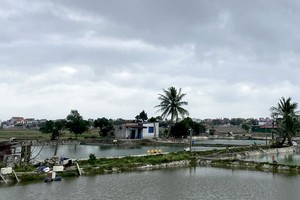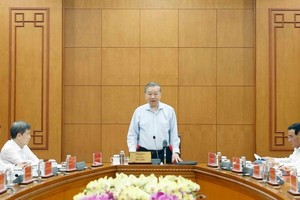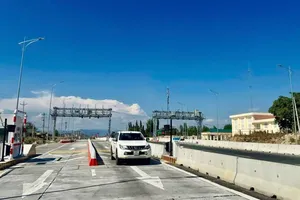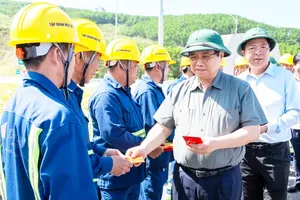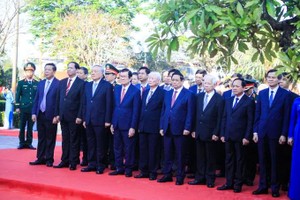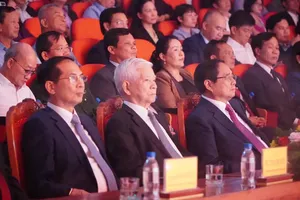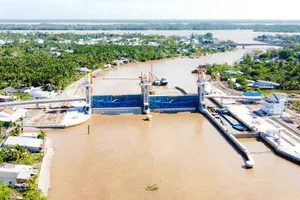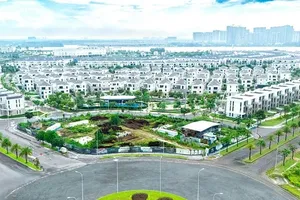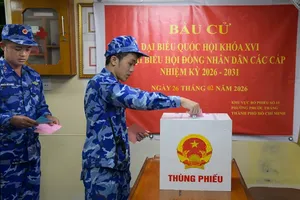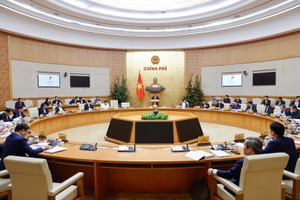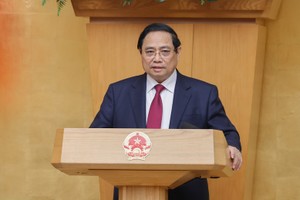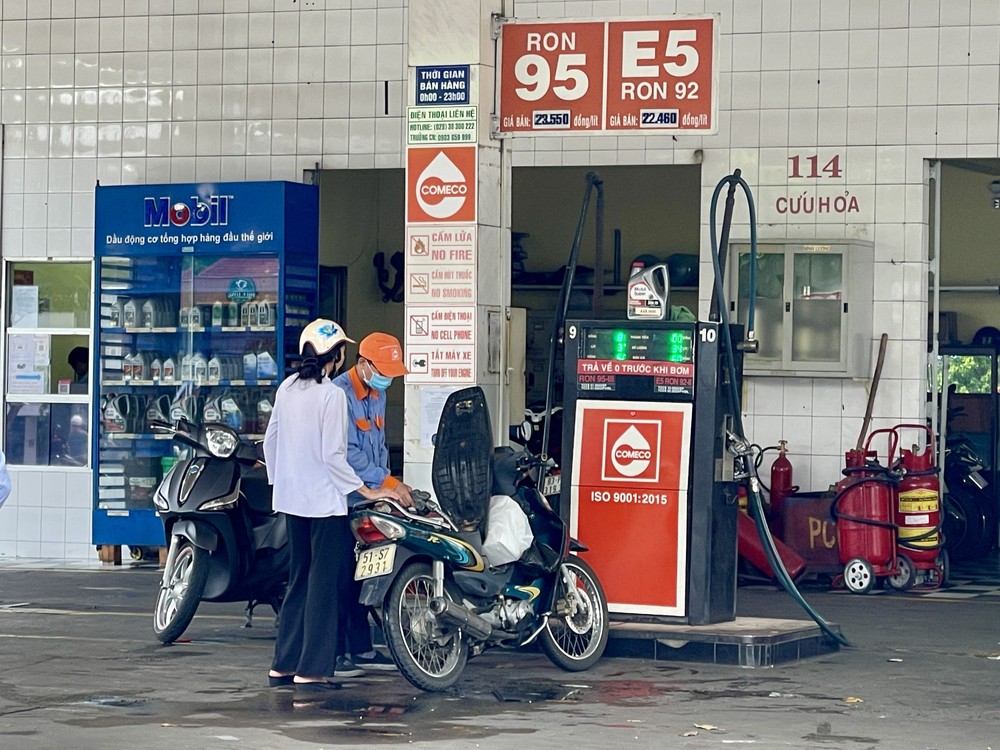
Waiting for bankruptcy
In mid-March 2024, the Hanoi Stock Exchange issued a decision to maintain a warning status on the OIL stock of PetroVietnam (PVOIL) because "the audited financial statements of the audited organization have been issued with an audit opinion except for three consecutive years or more". Then, PVOIL sent an explanation document, clearly proposing the solution for the Phu Tho Bioethanol Fuel Production Plant.
According to the document, the value of PVOIL's investment in PetroVietnam Oil and Biofuels Joint Stock Company (PVB) is over VND271 billion as of December 31, 2023 based on PVB's unaudited financial statements for the fiscal year ended December 31, 2022. PVOIL is still waiting for approval from the competent authorities to implement the bankruptcy plan for PVB. This is PVOIL's capital contribution investment in PVB - an associate company owned by PVOIL with 39.76 percent charter capital to build the Phu Tho Bioethanol Fuel Production Plant.
The project has been suspended since 2012, but it is still unfinished, has not been handed over by the contractor to the investor, and the construction has not been inspected and settled.
The above-mentioned project is one of 12 projects with slow progress and low efficiency in the industry and trade sector. A notice of the Government Office (2018) showed that the Phu Tho Bioethanol Fuel Production Plant project was proposed to consider dissolution and bankruptcy according to legal regulations.
PVOIL Deputy General Director Nguyen Tuan Tu said that the company has sent a document to PetroVietnam Corporation proposing to redefine the investment in this project to 0 dong when implementing the equitization settlement. In the process of bankruptcy procedures for the project, if there is any recovery from the liquidation of assets at the Phu Tho Bioethanol Fuel Production Plant, PVOIL will submit all to the Enterprise Arrangement and Development Support Fund.
This issue has been brought to the attention of the Vietnam Oil and Gas Group for consideration by the State Capital Management Committee in charge of restructuring, handling real estate, and addressing difficulties related to the equity divestment of PVOIL. However, this matter has not yet been reviewed and resolved by the relevant authorities.
Meanwhile, in a recent shareholder meeting agenda of Binh Son Refining and Petrochemical Company Limited (the parent company of BSR-BF, which is the parent company of the Central Biofuel Petroleum Joint Stock Company), it was revealed that the handling of this plant is currently under court jurisdiction.
In 2021, credit-granting banks including Ocean Commercial Joint Stock Bank, Vietnam Joint Stock Commercial Bank for Industry and Trade, and Vietnam Joint Stock Commercial Bank for Foreign Trade filed a lawsuit against BSR-BF at the People’s Court of Quang Ngai Province regarding overdue loan payments and measures to recover debts and interest related to the construction of the ethanol plant. The court issued a verdict accepting all the banks’ claims and ordered BSR-BF to repay the principal and accrued interest on March 26, 2023.
If BSR-BF is unable to make the payment, the banks have the right to request the disposal of collateral assets for debt recovery. Subsequently, BSR-BF filed an appeal against certain aspects of the judgment. However, as of February 22, 2024, BSR-BF has submitted a petition to the Quang Ngai Provincial People’s Court requesting bankruptcy proceedings.
Currently, the situation awaits the court’s decision. Regarding BSR-BF’s financial status, the overdue payments as of December 31, 2023, include interest expenses of VND 439.6 billion and an outstanding loan balance of approximately VND1,127.1 billion.
Hanging responsibility
According to lecturer Huynh Thanh Dien of Nguyen Tat Thanh University in HCMC, the suspension of ethanol blending factories to produce E5 gasoline must have a drastic solution as soon as possible to minimize losses while factories should not be closed for a long time, which will lead to increasing interest expenses as in the past. He said that the first thing that should be done is to restructure for better efficiency; moreover, if possible, conversion of the production of products that meet market demand following technology will be better or if not feasible, related agencies and companies should consider the transferring or reselling assets to other investors.
Only when both of these options are not feasible will bankruptcy be considered because the process of bankruptcy of state-owned enterprises is not as simple as that of private enterprises. In addition to the regulations related to bankruptcy, there is also the handling of the responsibility of those assigned state capital in state-owned enterprises according to the regulations on the management and use of state property. Those who are assigned capital to do business, lose money and lead to capital loss must bear personal responsibility, if the investment process is not carried out in accordance with legal regulations. Depending on the extent of the violation leading to losses, specific responsibility must be taken, even compensation."
Meanwhile, Associate Professor Dinh Trong Thinh at the Ministry of Finance’s Academy of Finance commented that the lesson that should be learned is that the projection of project development, forecast of the market, project supervision and implementation. For the E5 gasoline project, it can be seen that it was wrong from the beginning, that is, the project development consultation was not suitable. The E5 gasoline project was born when world oil prices were high at over $100 a barrel, the production of E5 gasoline could only be competitive with the price of traditional gasoline and oil, from which it would be effective and profitable.
Therefore, the biggest mistake was the project construction without proper evaluation and market forecasts. Therefore, when world oil prices have fallen to $70-80 a barrel, E5 gasoline is no longer effective. The cost of E5 gasoline was not carefully calculated either. Although it is said that biofuels will reduce CO2 emissions and seem "greener" and more environmentally friendly, economic efficiency is not considered.
In addition, the project implementation progress is too slow, taking up to 5-7 years to complete, which is also when world oil prices have changed. Therefore, if the project is still invested, it will be even more loss-making when operating. It can be said that the current situation of the projects is that it is a pity to give up, and it is a sin to cling on, said Associate Professor Dinh Trong Thinh.
